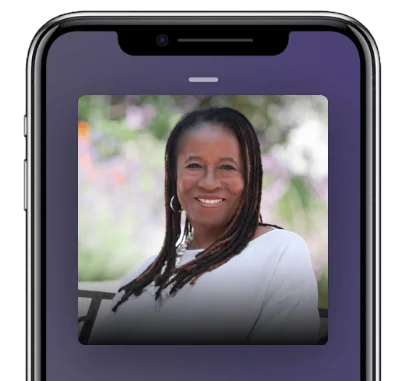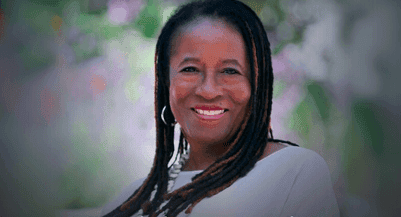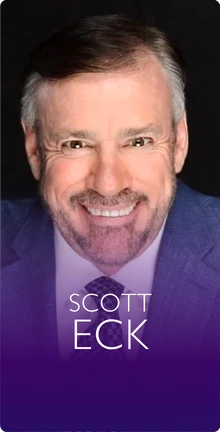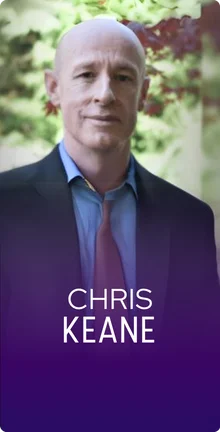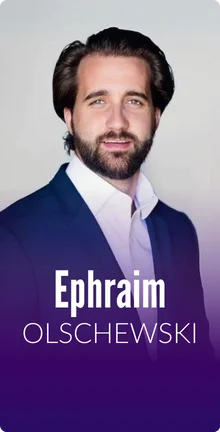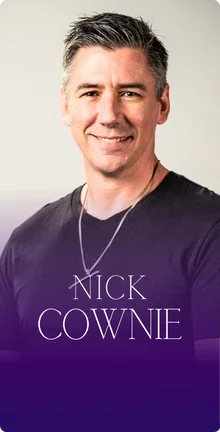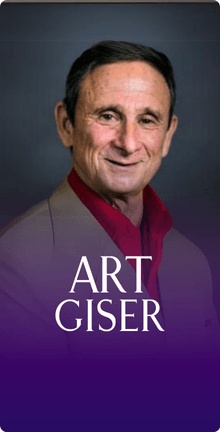Thank you for having me. It’s nice to be here chatting with you.
You made such an impact on me and my wife when we attended the intensive where you went through the five keys to mastery. If we just start there, what exactly is mastery by your definition?
Mastery has to do in this sense with people accomplishing what it is they say matters to them in their lives. The premise of this particular course, in this body of work is that we are the inventors and designers of our lives. Just like in any profession or if you look at music where people have mastered something, they have to have language, they have ways of being. They have a mindset that allows them to move from a beginner to a level of mastery. Mastery has to do with the shaping of one’s life, the design of one’s life. We have principles for that. One of the first principles that we speak about or bring people into consciousness or awareness about is this whole notion of being present, to be present in the moment. There’s a saying that the past is complete and gone except in one place and that is in our memory, and the future doesn’t exist yet because we don’t have any evidence for it. It’s here in this present moment, being present, being awake and experiencing our thoughts, our feelings, our emotions and our sensations that we can then have a space in which to create.
The past is complete and gone except in one place, our memory. Share on XCreation here again requires practice. It requires moving in the world in such a way that you are navigating the world instead of becoming a victim of the circumstances where you can navigate and move. Then in the navigation and movement, you begin to shape yourself as well as the circumstances of your life. Then the second piece after being present and being aware is where I spend a lot of time is in this domain and this realm of communication. What is communication like language? Quite often we think of language as representing or language as sharing between two opposite poles quite often or getting people to do something or getting ourselves to do something. Language in this sense has more to do with how we interpret, what meanings we give to the events in our lives. Then what role does language itself play in the invention and design of our lives? We become a listener of languaging. We begin to become observers of our meanings and how they are disclosing to us a certain reality that we have about life.
I’ve heard the expression that we’re meaning makers. We create all these meanings around things that aren’t necessarily true.
We’re a meaning-making machine. It goes back to quite a bit because this body of work comes out of two branches of philosophy: phenomenology and ontology. Ontology is the study of being, which allows us to observe our lives as co-participants in the shaping of our lives. When we speak about meaning, meaning-making machines, we’re saying that the meaning comes out of the culture we’re born into. It comes out of the worldview that we’re born into. As human beings, we have different aspects. It’s like our whole our body. We have a liver. We have a spleen. We have a heart. We have all of that and all of that’s contained in a living system. Worldview then is shaped, meaning our view of the world which shapes how we participate, engage, the actions we take, the people we love and the people we don’t love, our politics, our religion, all of that is being shaped in our meanings and in our interpretations. It’s very fluid. That’s one of the things I’ve come to appreciate this way of observing life and the interpretive nature of life.

When I can become an observer of my interpretations and my meanings, then I become a different navigator in the world. I become a different participant. As you can see in our world, what’s being interpreted politically? There’s one group that’s interpreting this way, another group interpreting that way and another group interpreting that way. All those interpretations are coming out of some meaning, some set of values. Whether we are present to those values, it’s shaping and having us act in particular ways. We explore that and we don’t explore it like the final truth because that’s not what we’re looking for. When I say we, my students and I. We’re not looking for the ultimate truth. We are looking for what’s workable for all of us dwelling together on this tiny planet called Mother Earth. How can we do it with a level of honor, dignity, respect and love? There are different meanings and different interpretations. One of the things I often say is I don’t want to work with people on what to think. I want to be engaged in conversations on how to think and that’s at many levels. Thinking itself is an interpretive process. What do we think? How do we think? How does the world occur for us? Where am I looking or listening from to have the world occur the way that it is? Does that make sense?
It makes sense to me but I’ve gone through your program. I’ve gone through other programs as well where I’ve learned very precise definitions of things like workability and presence and mastery and so forth so. I have a framework to work within and some of our audience have probably never gone through a personal development program. Some have, but some have not. For example, workability. What does that mean for you? Where did you learn that definition from?
Workability is a systemic way of looking at as well as observing life. My sister and I share a house together. She travels and I travel. When she travels, I have a whole different relationship with my house than when she’s here. One place specifically has to do with the table that we share for work. When she’s gone, I can have my papers all over the place. When she’s home, for workability and our relatedness and our relationship and workability for the entire house, then I put my papers away. I’m observing and asking what’s going to work for all of us, not just for me. Then workability in terms of relatedness shifts our participation. If it’s only about me, I’m going to show up in a particular way. I’ll take certain actions. When it becomes about the whole system, then something else starts to occur. I become a different participant just then shifting my observation and shifting what I say to relate our relatedness or what our relationships are.
There are many things that are similar about us. In fact, that's what makes us human. Share on XWhere did I learn this? In 1980, I studied with a man by the name of Fernando Flores. In that studying, we started to talk about and expand this whole range, this whole field of what’s possible and quite often we judge. We say, “This is right. This is wrong.” That’s one way to observe. Another way is, “Is this workable or not workable? Does it calibrate with what we are all up to together in this particular relatedness or relationship?” I learned a lot about it there. I learned also for many years with a company called Lifespring, which was a transformational experiential training company and the company started in 1974.
There might be some audience here old enough to remember the ‘70s. It was a time similar to right now but in a different way where people were asking a different set of questions. A different set of questions about who are we individually and who are we as a collective? Who are we as a nation? You can pretty much observe yourself and see that question has been asked all over the world, “Who are we as people?” Which is very distinct from how this question was being answered even back in 2000. This digital rapidly changing world that we are co-creating, and when I say co-creating meaning we are bringing the technology and as we bring in the technology, that technology is also impacting and influencing who we are. It’s not an “either/or” it’s about “and.” As we shape, we are also being shaped. As I’ve traveled around the world to many countries in Africa, to South America, here in the United States and Asia, I am amazed at all these people on this tiny little planet. There are many things that are similar about us. In fact, that’s what makes us human. We have our differences, which brings the color, the aliveness, the awesomeness of life, the beauty. Then the question of, “What’s workable?” instead of, “Are they right or are they wrong or am I right or am I wrong?” to “What’s workable for all of us?”

I learned from one of my coaches, Ephraim Olschewski who’s studied a lot under Landmark and Werner Erhard. He talks about, “There’s nothing wrong here and it’s not workable. There are no judgments. It’s a recognition that we’re not at maximum workability here so let’s solve it. Let’s address it.” That’s a very powerful way of looking at things.
Workable becomes a standard. It’s a standard of one that we have set. What’s the standard of our living together in such a way that the maximum amount of joy, happiness, fulfillment and safety that can be experienced by the largest number of people? Where I’m standing and how I’m observing and what I’m observing will have me answer that question. If I have come to the conclusion that workability has to do with the amount of money I have in my checking account and I’m observing that, then I’m going to go after more money because then I can say I’m workable. Another way of looking at it is saying, “Workability for me is the freedom that I have to engage, to learn, to participate, to engage and have full self-expression,” then that’s what I will sort for. That’s what I will calibrate my life with. We are asking people to observe, to begin to notice, what is workability? This is the key for me and that not just workability for Bettie Spruill but what’s workability for the whole.
The key here to building relatedness and workability is to climb the wall of context. There’s this invisible wall we don’t see that is between me and the person I’m communicating with. If I want to build relatability and relatedness with this person, I need to climb that wall of context, get over into their world, see from their worldview, from their eyes and step into their shoes. Once I’ve fully done that, then I can build that relatedness but it doesn’t count. All that work, all that effort I put into it doesn’t count until they feel gotten by me. It’s not enough for me to get them if I haven’t communicated sufficiently enough to them that I get them so that they feel gotten, none of them counts, which is a profound point.
The very fiber of our being is relatedness. When we come out of that, then there's a tremendous amount of suffering. Share on XIt is in the interpretation. This is where meaning and interpretation can come in again. If I interpret you as over there and I’m over here, then I have a different way of engaging and participating with you. I become a judgment machine. I look at Stephan and say, “He’s this tall, he’s this, he’s that.” Instead of just observing that, then I began to have my judgments about it, about you because you are over there and I’m only here. We’re disconnected. We’re separate. The emerging paradigm of ecology and relatedness is saying fundamentally that there is no separation. It’s also saying that when I encounter you, what I’m encountering is an aspect of myself which is the whole. To begin to listen in such a way that every human being I meet has intrinsic validation already and I become a different listener. I listen for that which connects us versus that which separates us.
There’s a listening exercise we do call generous listening where number one is to pay attention. Paying attention meaning especially in our automated world means putting everything down, “I am listening. You have my full attention. You have my full engagement right here, right now with you,” yet at the same time, all this chatter is going on. The distractions are going on. The more we can practice mindfulness, meaning learning how to be present, not to be distracted or when a distraction arises, how to notice it and then come back to giving you my full undivided attention. Then when I’m listening in that way, I can begin to listen to your meanings. Even though I’m listening to your meanings through my meanings, something can disappear and allow for space for us to be there, connected and engaged. Another word for that is intimacy, to be intimately there fully with you. Intimacy has to do with immersing ourselves in our relatedness where there’s a disappearance of that which we have decided separates us. In the presence of your life and your worldview, my worldview which are shared realities anyway, not separations. Then I can relate to you as someone I care deeply for.
Generous listening is a prerequisite to intimacy. If you’re on a date with your significant other and you have your cell phone on the table even if you’re not looking at it, that is not generous listening because part of your attention is taken away by that cell phone and its presence. You’re not fully present with your partner. Your brain is partially occupied on that phone. That’s not general listening. Put it away and turn off notifications and buzzes and beeps and all that, so you can be fully present and build that intimacy.
One of the issues that we face in our country is drug overdose and abuse. I assert that it has something to do with this domain of lack of intimacy, lack of relatedness and lack of connection. The more disconnected we become, the more we rely on our gadgets. We don’t have a way of dealing with the loneliness that human beings can and often do experience not because the loneliness is built into the game completely by itself, but because we don’t know how to connect. Put the gadgets down when your kids come in. Turn the TVs off, the iPads, whatever technology we have and say, “Tonight, you and I and the family will have dinner together.” Do you remember when we used to do that? I don’t know how old you are. Dinnertime was a time where you got together, you shared about your day. What happened there? That’s disappearing from our world. When that happens, then there is no relating. There is a transaction, but not relating. The very fiber of our being is relatedness. When we come out of that, then there’s a tremendous amount of suffering.

The truth is we’re all interconnected, yet we feel so alone because we get distracted and disconnected even though we have all these amazing devices. All the technology that connects us, we’re not using it for that. We’re using it for distraction and to feed the addiction.
What it is to be human is that we connect. There is absolutely nothing that you and I can do by ourselves. I know this goes completely against the American Lone Ranger, “I can do it all by myself.” We’ve got superheroes and supermen and superwomen. You can do it all. Something else is starting to emerge, which is letting us know that our lives and our interconnectedness and relatedness is where joy is, where peace is, where abundance is and where love is. We are not being taught that. We’ve been shown through the mechanistic worldview since Newton and Descartes and the Industrial Revolution and all of that, which had to happen. Please don’t hear me in any way saying that the Industrial Revolution or the technological advances we have made and are making are bad or wrong. I’m saying however, that until we can learn to use technology instead of technology using us, we will continue to diminish the very qualities needed to have us to live as human beings. What does it mean to put the gadgets down? Sometimes with some of my clients, as a practice, I ask them for a weekend to not turn on any of their gadgets. Can you imagine what that would be like? I don’t know if you do that.
I haven’t done it very often. I did it once for an entire week. I was made to because I went to a program called 40 Years of Zen. I had the CTO, Chris Keane on this podcast to talk about 40 Years of Zen. It’s an incredible program. It’s a full week of neurofeedback. The concept is that through neurofeedback and what they call augmented reset processes where you focus on forgiveness and gratitude, it’s very powerful. You can get lots of alpha and theta. Our brains most of the times are in beta and it allows us to get into a flow state more easily and stay there for longer. It was a profound program but we were told to keep the distractions not just to a minimum but nonexistent. Don’t even turn on the phone the whole week don’t check messages. There’s no technology. I didn’t bring my laptop. I had my phone on airplane mode. It was good. It was very profound and it would have been a less powerful weekend if I had kept my phone on.
I went to India for a silent ten-day meditation retreat. The first couple of days, I thought I was going to lose my mind because there was no reading, no writing, no technology and no talking. We had this conversation about meaning. What is meaning? Where is it? How does it occur? Where is it coming from? That stopped being a concept for me and became something where I became so grounded and so awakened in a sense that the world was never the same again. That’s how that was when I took practice. In fact, one night I had gone to the bathroom and I turned the light on and I saw this gecko on my bathroom wall, and I was frightened when I saw it. We weren’t supposed to talk but I said, “My little friend, I don’t want to hurt you. I know you’re not going to hurt me but I’m afraid of you. This is the deal. When I turn the light on, you leave. Then when the light goes out, you come back in.” That was the one conversation I had for about ten days, which allowed for another presence with life. Not having gadgets made life more colorful. It’s illuminated so much more. It provided for an intimacy with people that I had never had before. Intimacy, communication and listening. Another part of communication that we can talk about because you might be familiar with are the linguistic distinctions around promises, requests, assertions, declarations and offers. Are you familiar with that conversation?
I’m not, but I’d love to hear about it.
This comes back to listening too. A professor by the name of John Searle of UC Berkeley along with some other people, many people have studied this phenomenon called language and languaging. Searle started to observe and said when an effective action occurred in the world, people are making requests. They are promising. They are asserting. They’re declaring. They’re making offers. That’s a whole body of work that allows for navigation. You and I, for me to be here on this call, you made a request. I said yes, which was the promise to participate and inside of that we said what time, how, the conditions of fulfillment, the conditions of satisfaction. All that was going on all the time. By the time we got here, our actions led to this. The moment I said yes, it altered my very world because it eliminated everything else that I’m doing and it made time here now. You and I together out of a promise that was made. It began to have people listen in terms of workability. Is this a promise? “I’m going I’m going to try to be there. If it works out, I’ll be there.” That was not a promise. It was, “I will do my best to be there,” and quite often people do show up. This is happening all the time.
Integrity isn't about morality; it’s about workability. Share on XI used to live this in a horrible way and it affected everybody. It affected my family, my children and my wife at the time in a very negative way because I was not precise with my language. I was not a man who does what he says he’s going to do and then my family learned to not rely on me. I thought that if I didn’t say, “I promise,” that it wasn’t a promise. That is not only imprecise, but it’s also living a lie. When I say I’m coming to your recital or performance or your practice or whatever and I’ll pick you up at this time, that’s a promise because I made a commitment. If I’m a man who does what he says he’s going to do, then I do that. I don’t just show up late. I don’t leave that ambiguity. If there is ambiguity, I clarify the ambiguity. There’s no such thing as a white lie when you’re living this intentionality. You clear all ambiguities out and it’s very clear if you are going to show up, you will show up. I learned this again that I was better at this by the time I went to one of these workshops, but I was not living in integrity. I was dabbling in integrity. You still couldn’t 100% rely on me.
I have a great interview with Ephraim on the show that is a must listen for any of the audience who are into this and in fact, I’ve had him on my other show, Marketing Speak as well. There are two opportunities to hear him speak that are awesome. The first day of the workshop that I attended of Ephraim’s, I was three minutes late and that’s how I show up in the world. How you do one thing is how you do everything. We spent three hours of that day, that morning being a man who does what he says he’s going to do. Even though I didn’t promise by saying, “I promise to show up at [9:00] AM,” by the fact I was there at [9:03], I was out of integrity and it impacted the entire group and I didn’t even think about that. I thought, “I’ll slip right in and it’s just a couple of minutes. That’s okay.” That wasn’t okay. That had a profound impact on me for the rest of my life. It was years ago. It’s quite an amazing workshop and I felt bad that I had thrown a wrench in the agenda for the entire morning of a three-day workshop. It made an impact for everybody, not just me.
I can imagine because I’ve made seminars and training and this is an area where it’s where people’s power is. I don’t mean power over, but power with. Power also is the way we assess people and assess our lives. We say people are powerful when they are accomplishing what they said they’re going to accomplish, when they are having their teams work, having their families work, their circumstances and conditions are not driving them. It doesn’t mean that there are not circumstances and conditions but they have a different relationship with their word, a different relationship which then provides a different relationship with circumstances and conditions. It’s in the languaging, the promising and also the requesting that we build trust. We build community. We build intimacy. When people are not present and awake to what’s occurring through their actions, they start to live as if their actions are over there and their words and their behavior is someplace else. What is it to promise? To have us also start to look at, “What’s the promise of my life?” It takes different dimensions. Then inside of that, what are the promises? As you said, “I promise to be here at X amount of time. I promise to go to the gym.” Do you know anyone who quite often they’re promising to go to the gym? Then, “When the circumstances are right, then I’ll go to the gym.”

Promises work in a reverse way. Once you promise something, then you began to move the circumstances and conditions in a way to have your promise be fulfilled and then integrity. Integrity isn’t about morality. That falls into right and wrong again but integrity then starts to be about workability. Is this workable for all the levels of participation that’s available for my life and our life together? My observation is what are going to be the standards that we live by? What can we count on from each other? When people say something, can we count on that either as a promise, as an assertion? Is there a whole other conversation going on in the background and that conversation must at some point in time reveal itself? We are not as hidden as we think we are as human beings quite often and promising them allows for something that you said. It allows for trust, and trust is the glue that holds us together.
Trust is that which makes the coordination of our lives possible. I’m traveling to Los Angeles and I trust that the plane will take off when it’s supposed to. I’m trusting all that’s going to happen. The plane will be there and the pilot. The whole system will be working from the tower to everything, getting to the airport if I take Uber. I’m trusting that all that’s going to occur because of the promises we have with each other because of the coordination of our lives together whether I can see you or not. Then there’s a relaxing that takes place in my body when I can trust that at [9:00] we will be on this call together. I have someone who comes in on Thursdays to help me with my gadgets. I’m not very good at it. He was going to set this up for me but he didn’t come in. I said, “I can do this Skype-ing.” At [8:30], I was going out of my mind because I couldn’t find my headset that would go with this gadget. It was my respect for you and respect for myself and my word that I would be here when I said I would be here and prepare. That’s the other thing, not just to get here but be prepared as well.
This is one the biggest difference we make who we work with kids. I’m going to call it technology but this technology, my word matters and then along with promising, there were requests, promising and declarations. We are walking declarations and my declaration is one of the speech acts that shapes the very space in which we make promises and we’re making requests. The declaration is the space of possibility that I as a human being or you as a human being or anyone who’s listening, we’ve said, “I am this or I am not that,” or we say, “This is possible or it’s not possible.” A declaration then requires a committed speaker and a committed listener and someone with the authority to say. In our lives, we have declarations of being, “I am smart. I am lazy. I am abundant.” Not like positive thinking but a declaration shaped just by saying it. At the moment that you say it and you’re congruent with what you’re saying, then that space of possibility becomes available.
What it is to be human is that we connect. There is absolutely nothing that you and I can do by ourselves. Share on XMost of your audience have probably heard about the Declaration of Independence. That didn’t exist until someone said so. There was a space in which to declare. In the Declaration of Independence, if anyone ever reads it which is a very powerful document, they make claims. They said, “The King has this. The king has not done. The King has done this. He’s done this,” and then they assert all of this in evidence to support it. They say, “We pledge with our lives and without honor that this declaration, we hold these truths to be self-evident that all men are created equal. That they are endowed by their Creator with certain inalienable rights that among these are life, liberty and the pursuit of happiness.” It took many months to create that. What makes that declaration so powerful is that it flew in the face of how we have lived up until this point in time on the planet. People who had freedom, people who hold these truths to be self-evident that all men are created equal, even though that was written by white landowners at the time and it excluded a whole bunch of people. It became a transformative space for something that had not happened on this planet before. Someone is saying all men are created equal and they were using the generic term or meaning of man because woman wasn’t included in most of the literature at that time. They were saying something and in the saying of it, the speaking of it, it shifted how we started to live here on this planet. Everybody is equal. Was that always true?
No, of course not. The Truth is that we are all created equal but from the people’s limited perspectives, that’s not what they saw. That’s why slavery existed. Slavery existed after the Declaration of Independence. At least there are some leaders who stood up and said, “This is what we stand for now.” It’s very powerful. What you said about having a space available for this new conversation. A space is required because if you don’t have space, if you don’t leave space to let the other person respond or share their viewpoint, then you’re just talking at them. You’re not talking to them. You’re not talking with them and there’s no space there to co-create.
This is one part of what we learn especially in coaching is that instead of telling, which is how we lived for a long time. What’s emerging now is this ecological paradigm, this interrelated, interconnectedness that we’re all shaping each other. As I’m shaping you, you’re shaping you me, as I’m shaping the air, the water that we drink, the air we breathe, the very land that we walk on. It is a profound relatedness. When there’s honor for that, which requires a certain level of consciousness, then something starts to happen. Social responsibility is not something I do. Social responsibility is what I am. It’s not a task. It is the meaning that I give and the meaning that I receive, which is also another issue facing us now is meaning. Where do I get meaning? How do we live in such a way that my life means something? Not only to get up and go to work and then come home and watch TV or in constant battles with other people and our bodies. Meaning is something that people are looking for now, seeking for now.
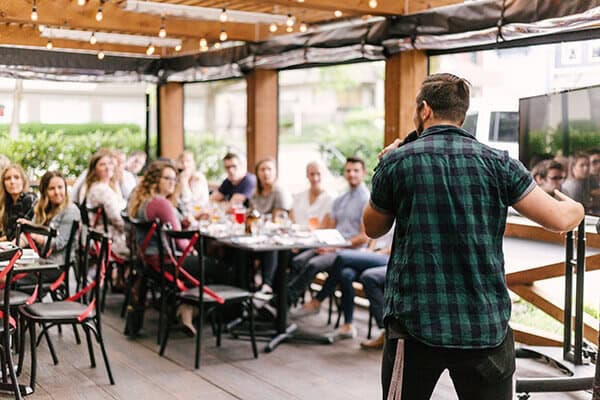
It’s funny that you say the word seeking because that reminds me of something I want to just share briefly. It’s a huge gift that you gave me that I was able to pass on. I have a friend, Jonathan, who is a big name in the personal development space. His fiancé and my wife and I, we’re all sharing breakfast and we were having a profound conversation. Here’s where sometimes saying less is saying more because I could have chimed in with so many different things and I didn’t. I restricted to use the term from Kabbalah, which is a restriction. I restricted and instead when I did speak, it was very profound. One thing that I called him on was he said that his fiancé was not a seeker and he’s okay with that.
This was coming from a place of judgment, he just didn’t see it but it was from his viewpoint a place of acceptance like, “I’m accepting that she’s not a seeker. I’m not going to force her to come to these different seminars or what have you. It’s totally fine.” I’m like, “I have a bone to pick with you about this because what you’re doing is you’re characterizing by calling her not a seeker. You’ve collapsed all possibilities. She has infinite possibilities and yet you characterized her. You’ve put her in this box. You’ve collapsed all possibilities into one. Now, she is not a seeker. That’s not true. That’s not fair for you to do that to her.” He took that on board because I wasn’t trying to give him 50 different other teaching points and I just shared that. I have you to thank for that distinction about characterizing. I made a real impact on him that day.
Thank you for that. By saying that she is not a seeker, that became a declaration, “She’s not a seeker, then she’s this.” I’d be curious what are you saying she is? You will operate based on your characterizations of her. I go to a Zumba class and one day my Zumba instructor was supposed to start at [8:30] and she got there at [8:35]. She came in. She was running, unlocking the door and she had a little daughter with her, which was about four years old. She said, “I’m so sorry I’m late. I apologize but my daughter over here was just lazy this morning.” I stopped. She said, “My daughter’s lazy.” I went over. I took the key out of her hand. I said, “Let me help you with this and we need to talk. This little girl is not lazy. She just didn’t want to walk this morning. You’ve characterized her as lazy. This is what will happen if you are not careful. You will start to collect evidence to be right about your characterization that she’s lazy. She’s not lazy. She just didn’t want to walk this morning.” She said something and I said, “I have seen you walk down the street with this little girl. If I were her, I wouldn’t want to walk with you either with the way you’re pulling on her.” We didn’t do Zumba that morning. We had a chat all of us about what we say and how we characterize ourselves and how there’s body shaming and intelligence shaming. All of that goes on because someone said so.
Trust is that which makes the coordination of our lives possible. Share on XOur words matter. Our words have an impact. They shape our reality. The manifest what our reality is for us and for others. Can you share with our audience how they could work with you? You have an amazing coaching certification program. You have individual clients that you work with as well. How would somebody work with you, sign up for your school and get coaching from you? Where should we send them?
You can go to my website and the website is IdealCoachingGlobal.com. The work that I am engaged with and with people in our community is how to think. We know how to take actions. In the existing paradigm that we live in, we can only take actions that are matching what we already know or have declared. This is about stopping for a little while. You don’t have to tear down the Statue of Liberty to refurbish it or to spruce it up. We human beings are the same way. You can’t just stop and say, “I’m not going to do anything,” but you begin to innovate, navigate, surf do it all together while life is occurring. For a long time, we lived as if the Earth was the center of the universe and the sun was going around the Earth. Our language still speaks that way. It still says the sun is rising. No, the sun is not rising. This sun is pretty stable and we are moving around the sun. The Earth is moving around the sun and our lives are pretty much the same. We say something, we observe in a particular way that limits our possibilities and our innovations. Check me out, BettieJSpruill.com. You can also find me that way.
Bettie, this was a real pleasure. Thank you for sharing all this wisdom with us. I will definitely want to have you on the show again. We’ll connect on getting you back. Thank you again. It was a joy.
Thank you.
Thank you, everyone. We’ll catch you on the next episode.

